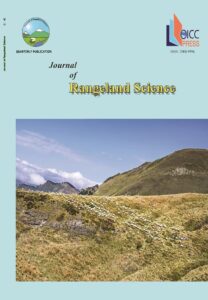Presentation of Suitable Model to Estimate Vegetation Fraction Using Satellite Images in Arid Region (Case Study: Sadough- Yazd, Iran)
Authors
Abstract
One of the influential tools concerning the rangeland and vegetation sciences is
the technology of remote sensing and satellite data. Satellite data have played essential
roles in preparing the needed information for studying the vegetation. Vegetation has been
widely recognized as one of the best indicators for determining the land conditions. Using
vegetation indices is one of the techniques of remote sensing to study the vegetation. The
purpose of this research is to study the vegetation indices and also provide an appropriate
mathematical model for estimating the vegetation fraction using the mentioned indicators.
In this research, different vegetation indices were calculated by Landsat TM (2006)
satellite images in order to evaluate their capability to estimate the vegetation in the arid
regions. At the outset, vegetation fraction was measured using the sample quadrates and
then the measured data were compared with the values of digital numbers for the site
pixels. Multiple regression analysis was utilized for the actual values and parameters to
select the validation and optimization models. Indices which have been calculated include
MSR, DVI, TRVI, SARVI, SR, RDVI, DVI, NDVI, SAVI, ARVI and MSAVI. The results
showed that the model in which ARVI was used had the highest accuracy (R2=0.86) and
therefore, it was chosen as the most suitable model for the estimation of vegetation fraction
in the study area. One accomplishment of the above results is to suggest some
mathematical equations with those indices to estimate the amount of vegetation. These
results provide a strong foundation for the use of some vegetation indices for assessing the
vegetation cover in central Iran.


